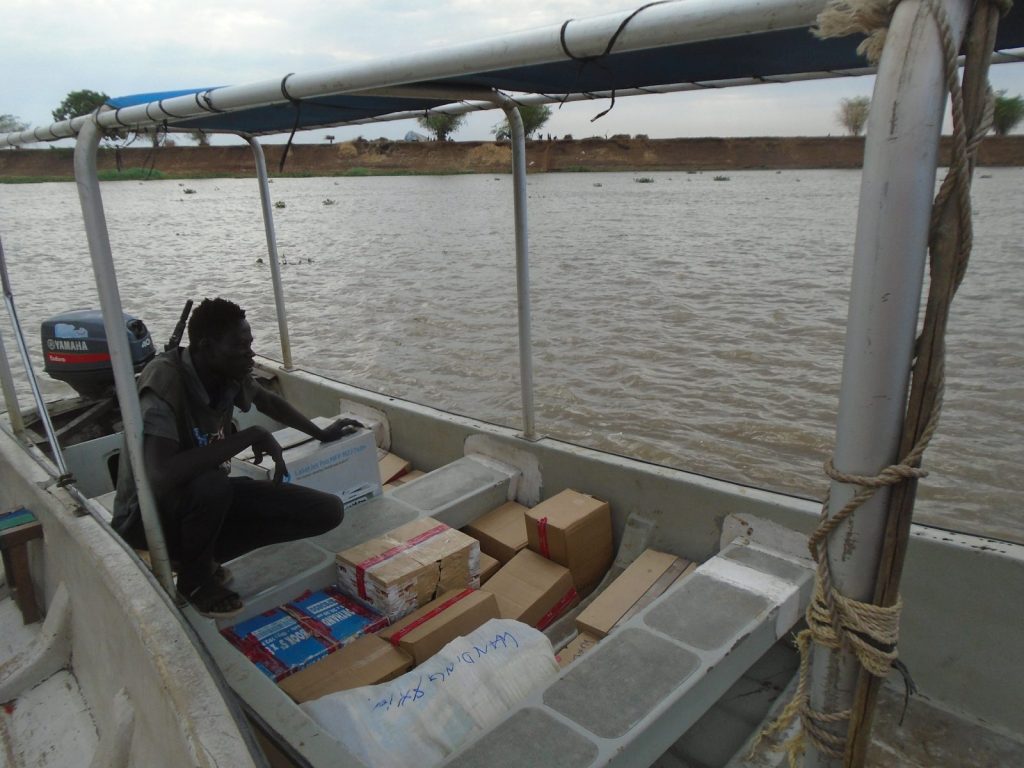The MENTOR Initiative is working closely with its partners to control and subsequently eliminate onchocerciasis and lymphatic filariasis in South Sudan, which are among the five endemic Neglected Tropical Diseases that respond to Preventive Chemotherapy (PC-NTDs).
MENTOR and the South Sudan National NTD Programme, with funding from The END Fund, is targeting onchocerciasis – commonly known as ‘river blindness’ – and lymphatic filariasis through an ongoing annual mass drug administration (MDA) campaign.
MENTOR and The END Fund began their partnership in South Sudan in 2017, carrying out MDA campaigns for lymphatic filariasis and onchocerciasis in nine counties of Western Equatoria State in 2017/2018 and in all 10 counties in 2018/2019.
In 2021, the partnership was renewed to deliver programmes in the states of Jonglei and Upper Nile States where thousands of people are frequently affected and displaced from civil unrest and recurrent floods.
MENTOR, and the National NTD Programme implemented MDAs in September 2022 to cover seven endemic counties for onchocerciasis: Akobo, Pibor, Pochalla, Longochuk, Luakpiny/Nasir, Maban and Maiwut.
In the counties of Longochuk, Luakpiny/Nasir, Maban and Maiwut, where lymphatic filariasis is endemic, both diseases were targeted for treatment. The campaign targeted both refugees and the host population in Maban.
The programme was carried out according to the South Sudan Ministry of Health and WHO integrated approach for the control of high-priority NTDs.
How it is delivered
The National NTD Coordination leads project implementation with oversight and technical assistance from MENTOR. A community-based distribution strategy including door to door directly observed treatment was used by community drug distributors, with supervision from trained county, payam and boma supervisors. In some cases, treatment was distributed at a centralised location within a community.
Prior to treatment an Information Education Communication (IEC) campaign raised awareness through radio messages, banners, posters and flyers to increase acceptance and promote disease prevention messaging.
The situation in South Sudan
South Sudan became the world’s youngest independent nation in 2011. After a period of building governance structures and increasing institutional capacity, tensions between different ethnic groups brought political instability leading to civil conflict and clashes in 2013. The conflict remains ongoing in parts of the country, with periods of confrontation alternated with periods of peace.
Since the start of the civil unrest, it is estimated that tens of thousands of people have been killed and much of the nation has faced food shortages. There are a large number of internally displaced peoples (IDPs) and the UNHRC estimates about 2.5 million people, mostly woman and children, have been forced to leave the country.
Despite political and security challenges, the Ministry of Health has worked diligently to scale-up NTD treatment where resources and security allow. In 2022, 100% geographical coverage was achieved for the first time in 64 counties where these two NTDs are endemic. MENTOR managed the programme in seven of these counties.
Since the closing of the African Programme for Onchocerciasis Control (APOC) in 2016, several partners have stepped in to support the National NTD Coordination. They have been providing technical assistance to the delivery of annual MDAs, while strengthening the health system through capacity building.

